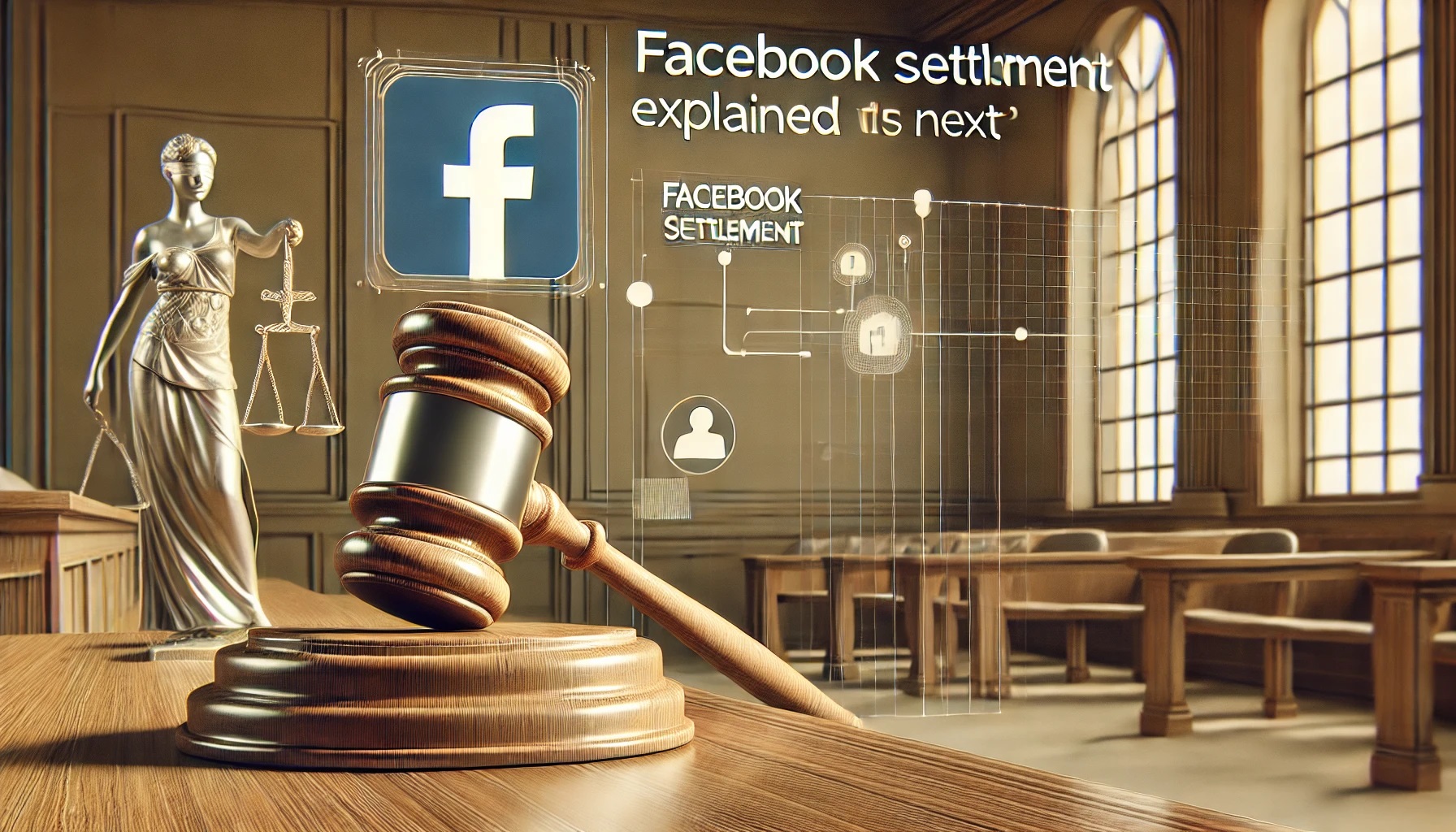
Facebook’s $725 Million Settlement: What Happens Now?
The recent $725 million settlement involving Facebook has sparked considerable discussion. This Facebook settlement action is a response to ongoing concerns about privacy and how the social media giant handles user data. As users look for clarity, understanding the details of this settlement becomes essential.
Introduction: The Fallout from Facebook’s Privacy Practices
Facebook has faced numerous allegations regarding its privacy practices. With millions of users affected, the settlement aims to address past issues. It highlights the urgent need for transparency and user rights in the digital space.
The Scale of the Facebook Settlement and its Implications
This historic settlement represents one of the largest payouts related to privacy violations. It underscores the financial risks companies face when mishandling user data. In a world increasingly focused on privacy, the settlement serves as a warning to businesses about the potential consequences of lax data practices.
What Led to the Facebook Settlement: A Brief History
The roots of this settlement trace back to various controversies, including:
- Cambridge Analytica Scandal: Unauthorized data access raised alarms.
- Data Breaches: Instances where user data was accessed without permission.
- Privacy Policy Violations: Allegations that Facebook misled users about how their information was utilized.
These events fueled lawsuits, leading to the monumental settlement.
Who is Affected by the Facebook Settlement?

The settlement impacts millions of Facebook users. Anyone who had their data compromised or misused during the specified period may be eligible for compensation. This includes individuals in the U.S. who maintained a Facebook account from 2007 through 2022.
Understanding the Terms of the Settlement
To grasp the full impact of this settlement, it’s crucial to understand its main provisions.
Key Provisions: Data Privacy and User Compensation
The settlement outlines several key points:
- Financial Compensation: A substantial portion allocated for user claims.
- Increased Transparency: Facebook must improve its privacy disclosures.
- Data Handling Changes: New protocols for how user data is managed.
Eligibility Requirements: Who Can Claim Payment?
Users who:
- Had a Facebook account between 2007 and 2022.
- Experienced unauthorized access to their data.
are eligible to file a claim. It’s essential to check the specific dates and guidelines.
How to File a Claim: A Step-by-Step Guide
- Visit the Official Settlement Website: Look for the user claims section.
- Complete the Claim Form: Be ready to provide personal information.
- Submit Your Claim: Follow the required submission deadlines.
Ensure you keep a record of your submission for future reference.
The Impact on Facebook’s Future
This settlement will undoubtedly shape how Facebook operates moving forward.
Changes to Data Collection Practices
Facebook is likely to adjust its data collection and sharing processes. This may include:
- More robust data security measures.
- Clearer information about data usage.
Increased Regulatory Scrutiny and Potential Fines
Regulators will likely scrutinize Facebook’s practices more closely. Future violations could lead to hefty fines and stricter regulations. Companies must take note: non-compliance can become even costlier.
Long-Term Effects on User Trust
User trust is critical for Facebook’s success. This Facebook settlement could either restore confidence or continue to foster skepticism. Transparency and accountability will play a significant role in rebuilding relationships with users.
The Broader Implications for Data Privacy
Facebook’s settlement reflects broader trends in data privacy concerns.
Similar Cases and Legal Precedents
Other tech companies have faced similar backlash over privacy issues. This includes:
- Google: Lawsuits regarding data collection.
- Apple: Controversies over app privacy policies.
These cases influence new legal standards and user expectations.
The Future of Online Privacy Regulations
As privacy violations mount, governments are stepping up regulations. Expect to see:
- Stricter rules on data usage.
- More empowerment for users to control their data.
Best Practices for Protecting Personal Information
Users should adopt proactive measures to safeguard privacy. Some effective strategies include:
- Regularly updating passwords.
- Using two-factor authentication.
- Reviewing privacy settings on platforms regularly.
What Users Can Do Now
With this settlement in mind, users should take proactive steps.
Reviewing Privacy Settings on Social Media Platforms
Take a moment to assess your privacy settings. Adjust them according to your comfort level. Remember, the more control you have, the better.
Utilizing Privacy-Enhancing Tools and Technologies
Consider using tools like VPNs and privacy-focused browsers. These can help shield your data from prying eyes.
Advocating for Stronger Data Privacy Legislation
Join the conversation about data privacy. Support initiatives aimed at enhancing user rights. Your voice can influence change.
Conclusion: Looking Ahead to a More Private Digital World
As we reflect on the implications of Facebook’s settlement, the future of data privacy appears pivotal.
Key Takeaways: Protecting Your Data in the Digital Age
- Understand your rights regarding data usage.
- Actively manage personal privacy settings.
- Stay informed about changes in privacy laws.
Call to Action: Stay Informed and Engaged
Stay engaged with discussions around data privacy. Your participation matters in shaping a more secure online environment.










